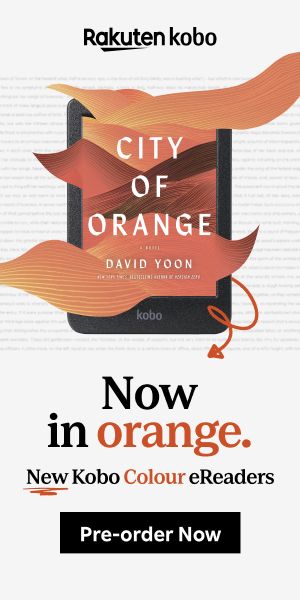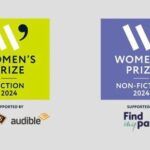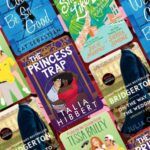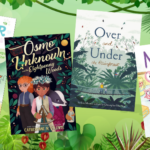
When It Becomes Work: Reading for Review Isn’t Reading for Pleasure
For years, I had worked in the editorial department of a publishing house, a “glamorous” job for every English major and bookworm. When a friend, whom I didn’t see in a while, got curious and asked me if it’s “stressful” since it’s what “you like doing anyway,” I told them the truth that sure it is. “Even though books are something you love?” they asked, making me step back for a second to re-evaluate my life. “Absolutely!” I eventually said.
Years later, I ended up moving to a different part of the industry.
I have been reviewing science fiction, horror, and fantasy books for Publishers Weekly for three years now. It’s my regular reviewing gig, and I get assigned two books in a month. My reviews, though unattributed, have appeared in many front and back covers. I’ve reviewed authors famous and less known, getting the first dibs on upcoming releases. Since it’s a regular thing, it has become part of my reading life; even much of what I read come from PW.
Don’t get me wrong: I like what I do, as I get “beer money” just by reading. But I noticed lately, in between pages of a dreamy fantasy book, that reading for review purposes, especially for a trade magazine, is a different beast altogether from reading for pleasure.
Last year, I tried to build a hard wall between my personal and professional life. “In a way, work was all that I had — and I made it a large component of my identity. In doing so, it burned me out,” wrote Wudan Yan in an eye-opening essay on Poynter to which I can totally relate. As a publisher and writer myself, it’s been a grueling work to detach my personal self from my professional identity. Whenever I read a book these days, I always contemplate if it counts toward the personal or the professional. If reading becomes work, how do you draw the line? Why make it complicated?
For the three years that I have been reviewing books for a living, I think I have only gotten to read a couple of books for pleasure. For a long time, I never read something that I personally picked up because I liked it.
Reading for Pleasure and for Review: What It’s Like
When reading for pleasure, you have the freedom to read whatever you want. You may read some gaslamp fantasy to escape this horrible, horrible world or that self-help nonfiction everyone’s been talking about. It’s what you would devour in your free time.
Reading for review is more rigorous. When I do this, I take lots and lots of notes of plot points, highlight quotes and dialogue, and gauge the whole thing for its value. I also have to dig in deeper to determine if the book delivers or not. Although it’s rewarding to do all of that, to be of service to potential readers, it takes a lot of mental work than what I would usually do when reading for pleasure. When you read for yourself, you’re allowed to break all the rules, like maybe, skipping some words or lines you find clichéd or boring? But to read a book and write a professional review about it, everything has to be analyzed down to the punctuation marks.
And then of course, writing is an entirely different part of the process.
Why It Has Been Difficult to Separate the Two
The pandemic has blurred the lines as many of us shifted to remote work.
As I planned to get back to leisure reading after a long time and with some downtime, downloading lots of books onto my Kindle Paperwhite, I found myself taking more reviewing work because…I simply enjoy reading. When you enjoy reading a book, be it for work or pleasure, you can easily lose track of time. And it’s hard to untangle the lines when you’re already down the rabbit hole.
But who am I kidding? My poor time management may be the main reason why I can’t enforce the boundaries I’ve placed.
And so my Paperwhite was just there on the nightstand, sitting mute and gathering dust.
Why It’s a Big Deal
There are two contradicting opinions about this phenomenon of separating work and professional life. Many offer advice on how to do it successfully, while others, like in this Vox piece, take a dim view of it: “Compartmentalizing work and life had never made sense to me.”
And then the pandemic came knocking, which completely obliterated the line for many.
As for me, it matters to set them apart as I don’t like the idea of my career defining my identity. Life is so much more than work, even though it’s based on your passion.
It’s not that I hate what I do, but reading for work sometimes takes away the enjoyment. I’m the kind of reader who takes their time when a book is really good. But alas, reviewing assignments have deadlines.
I also have a bad habit of putting books on the DNF list if the first chapter doesn’t make me nearly fall off my chair. I can’t count how many books I didn’t completely enjoy at first. But because it’s work, I had to cast my personal preferences and whims aside, hoping that the next few chapters would become better. And they usually do.
While reading, I also have to pause for a while and do annotations, analyze the themes, and try to see what the author is trying to achieve. When I rehash the plot points of a book, I have to make sure that I recall the events accurately. Though these all sound exciting, you don’t do countless fact checking when you’re just reading in your free time.
Since the pandemic blurred the boundary between our work and personal lives, it’s increasingly difficult to balance them. To stay mentally healthy, it’s important to draw the line, even though things seem murky at first.
I’m not, by all means, against doing review work or reviewing in general. But reading for review and for pleasure, for me, are opposite sides of the same coin. And it’s important to make a distinction.










